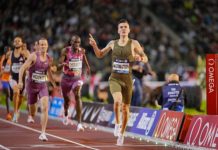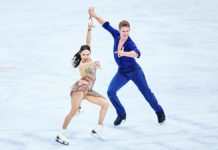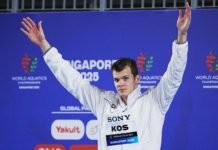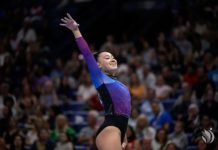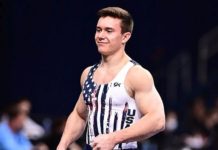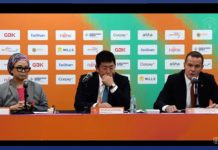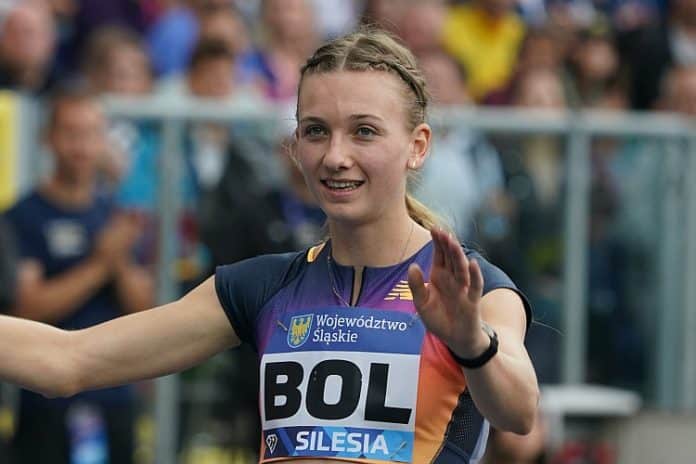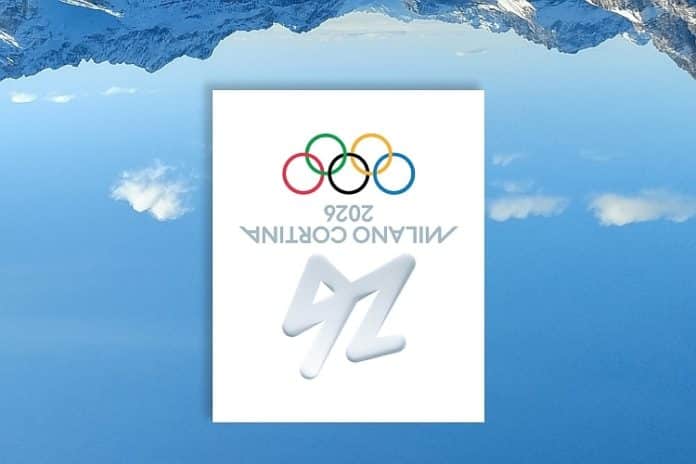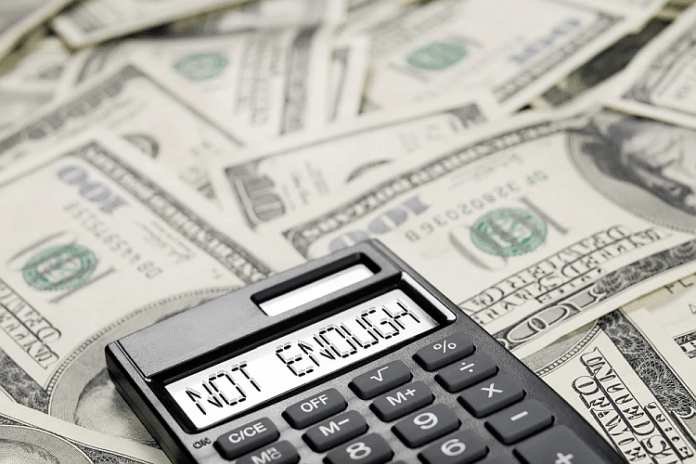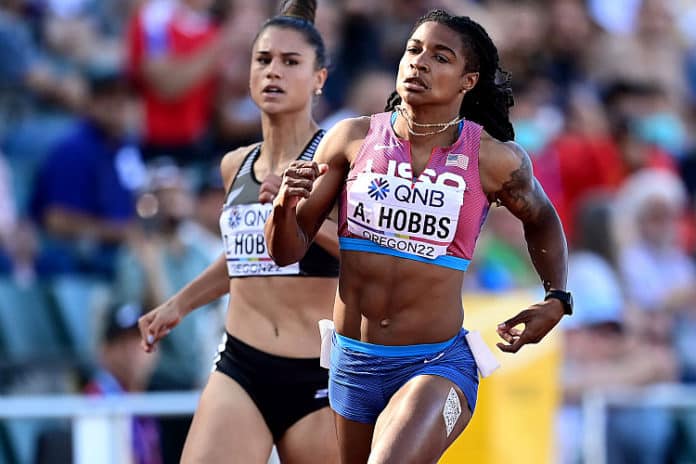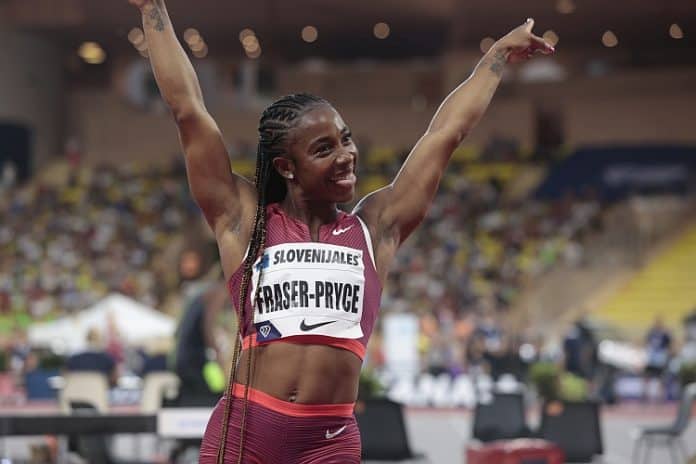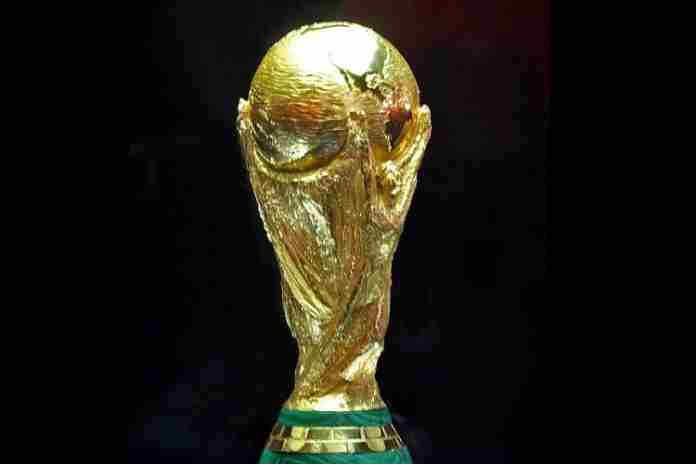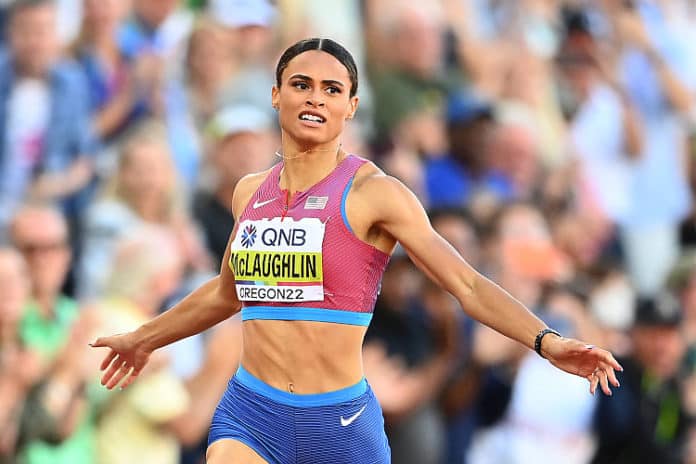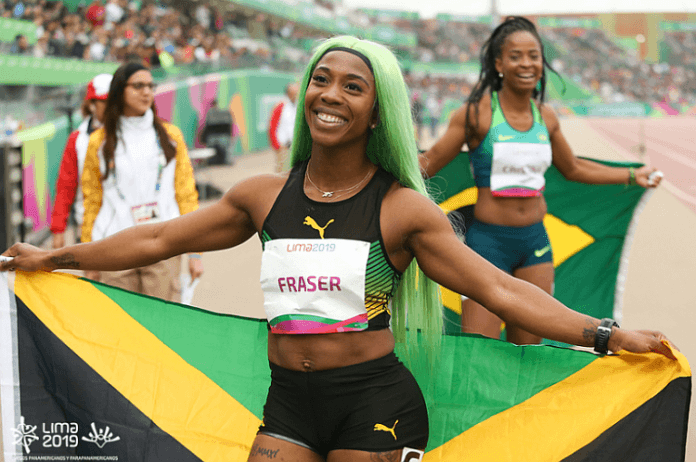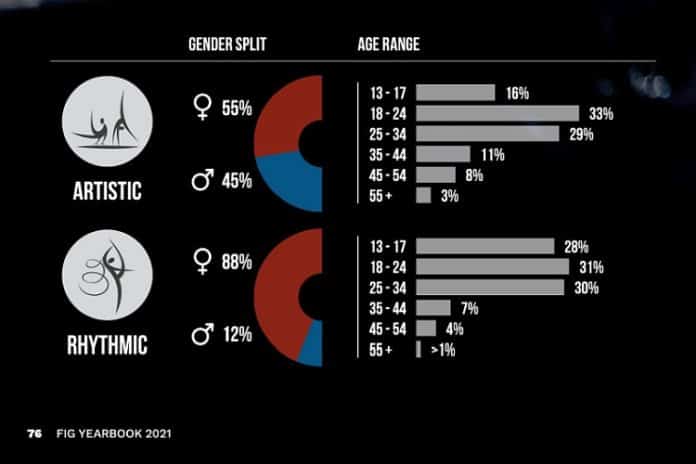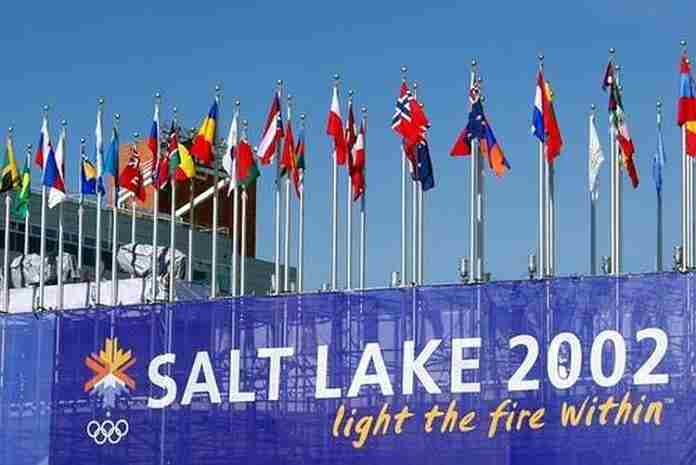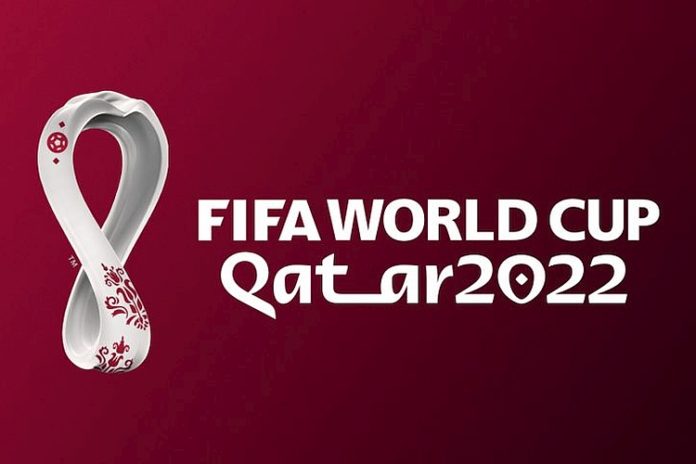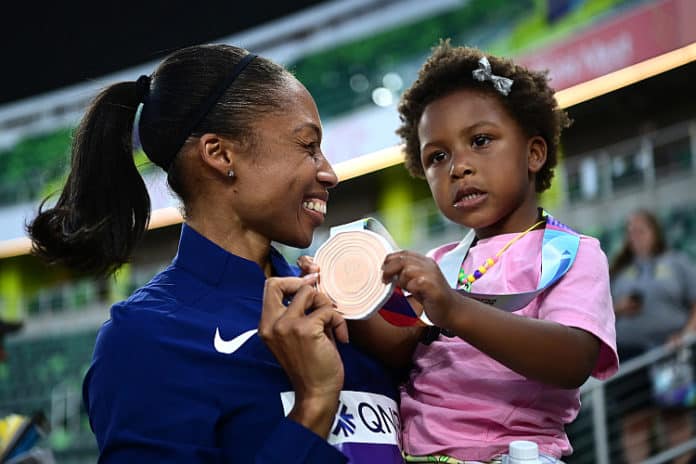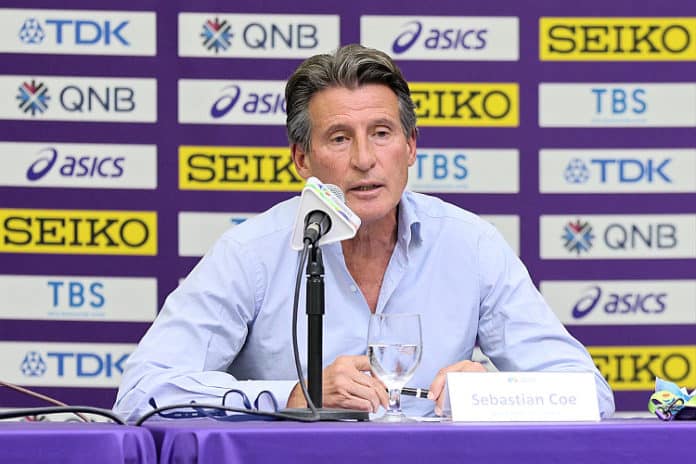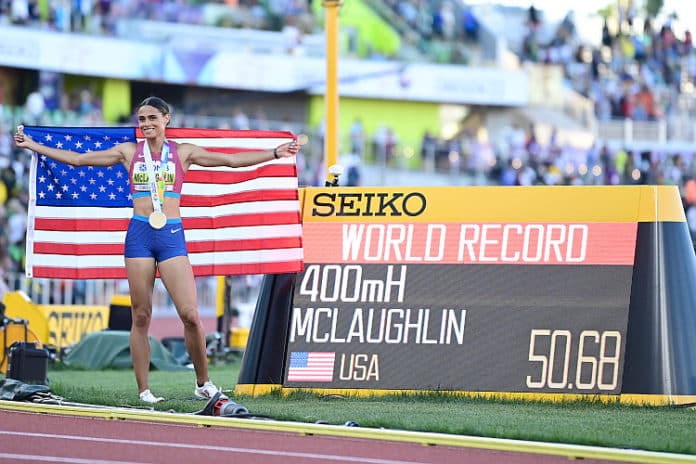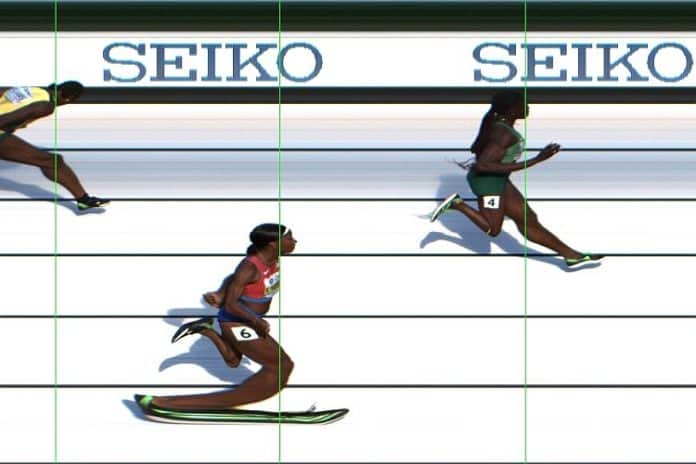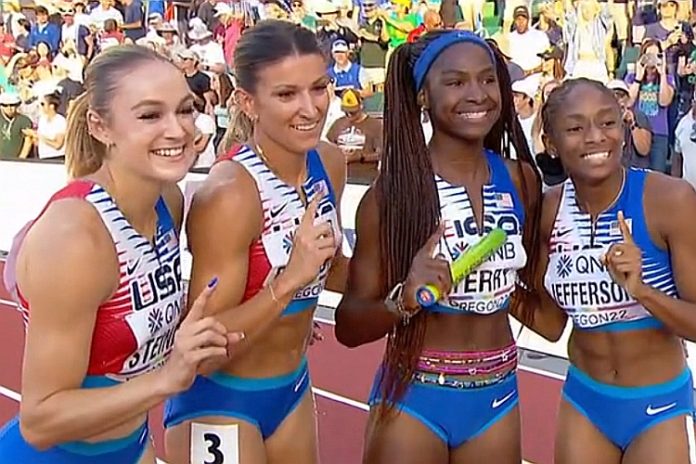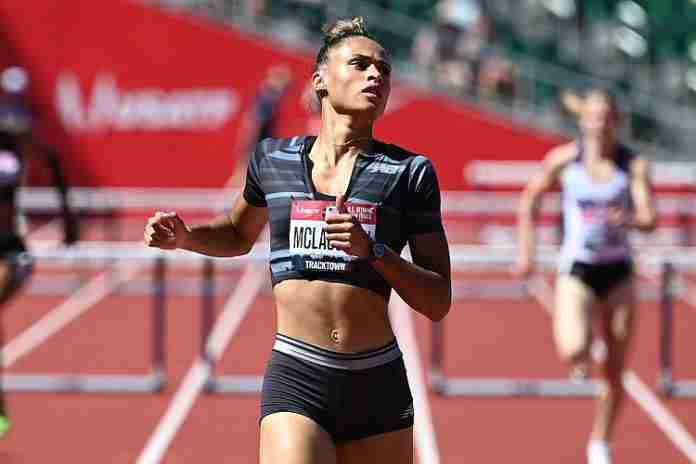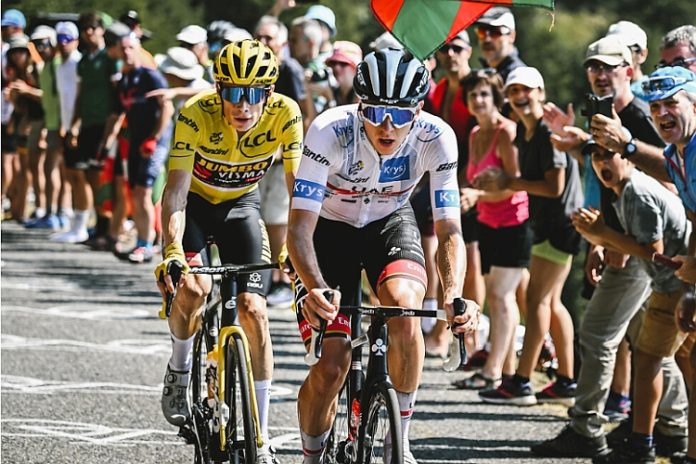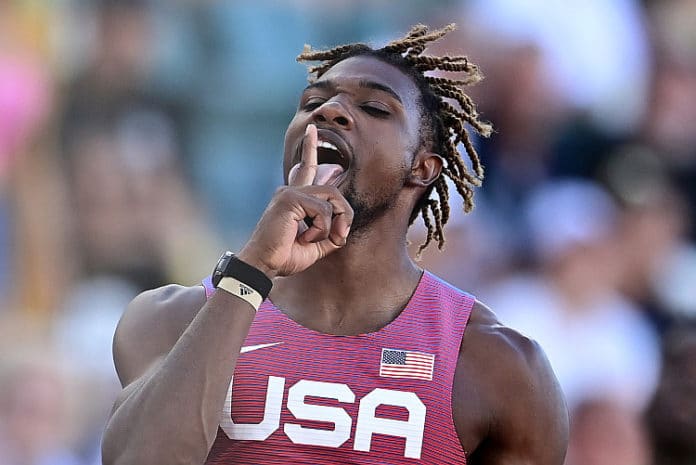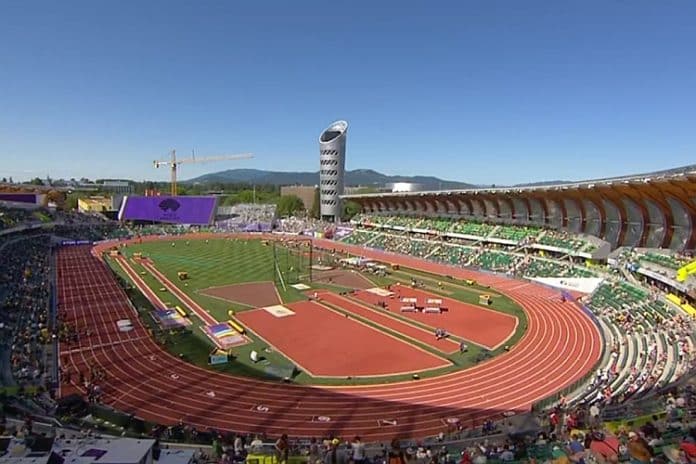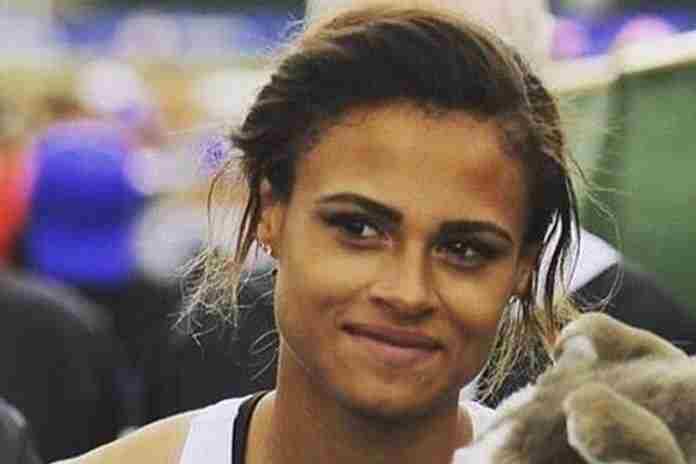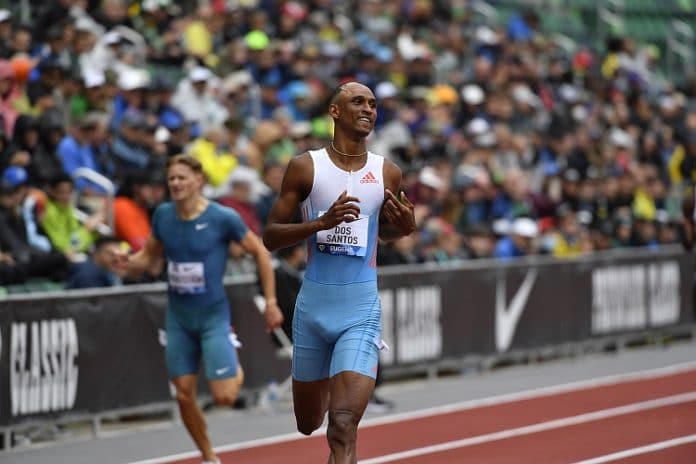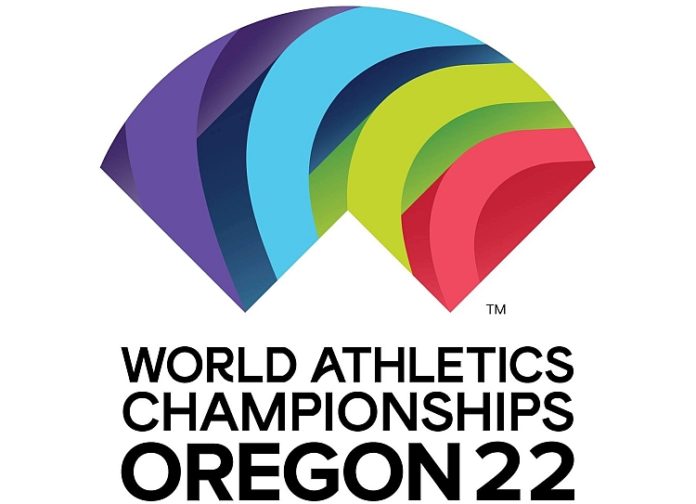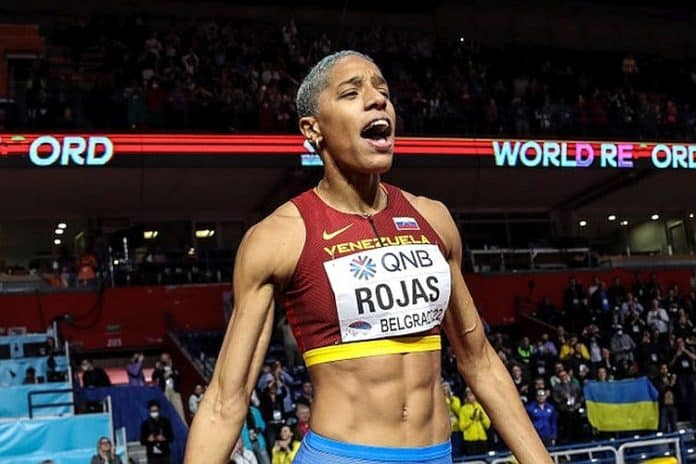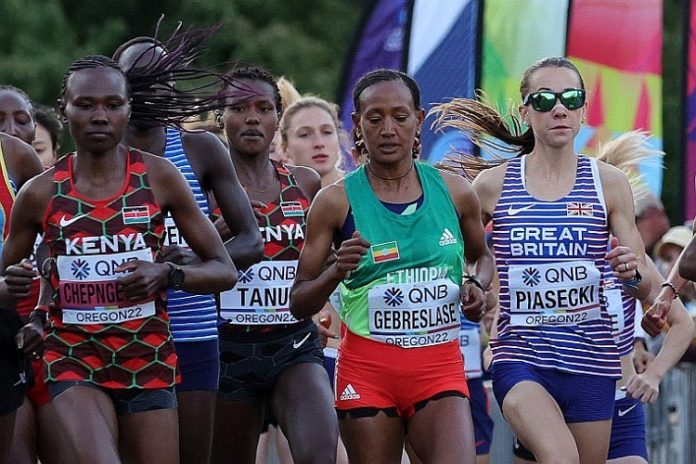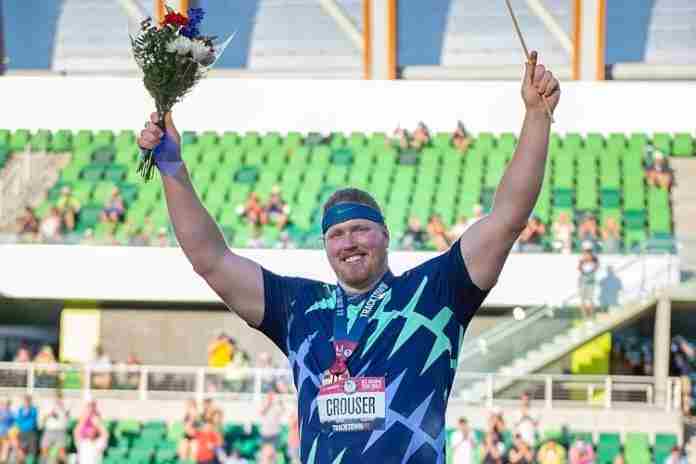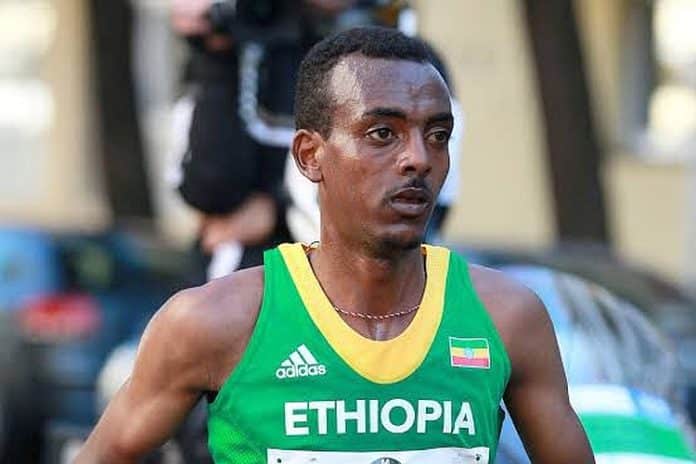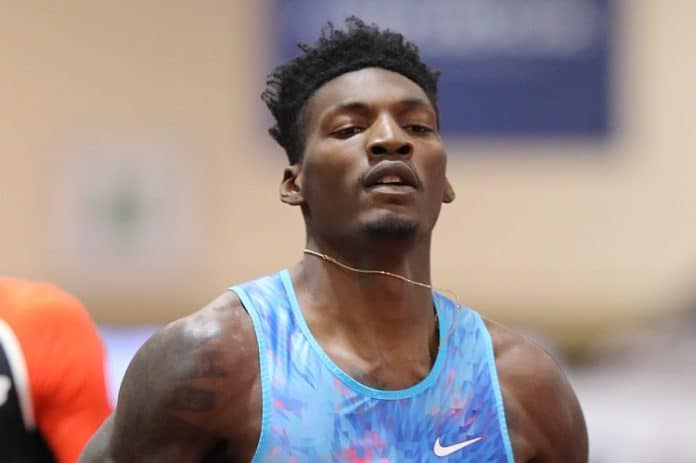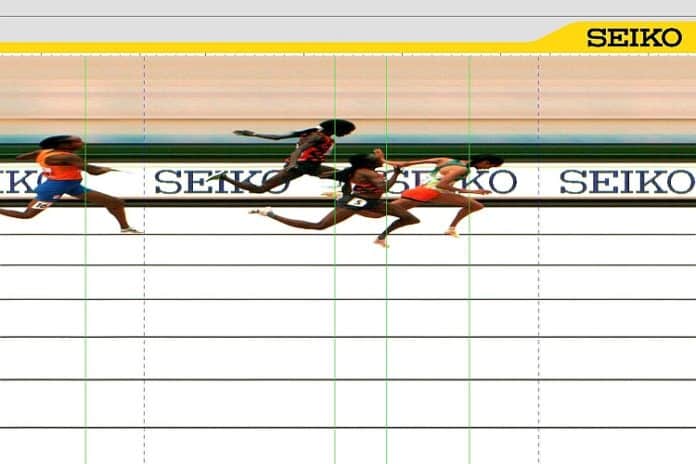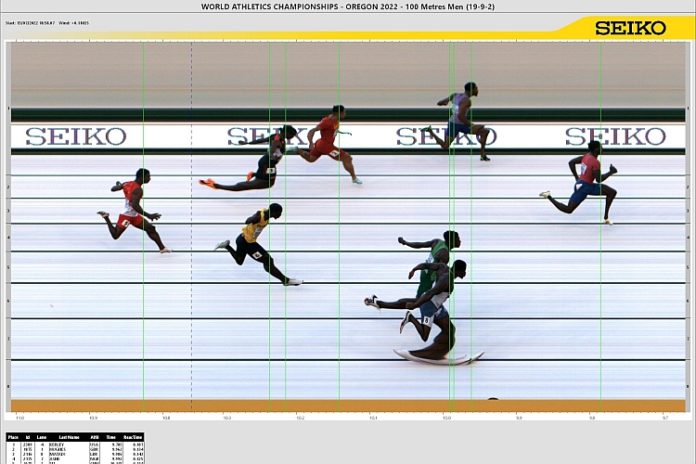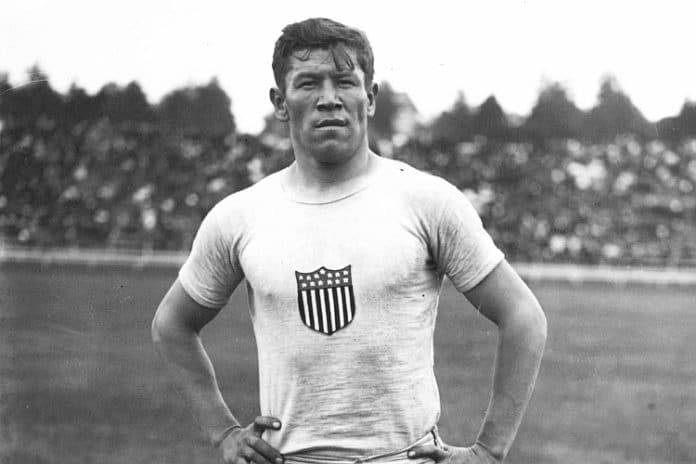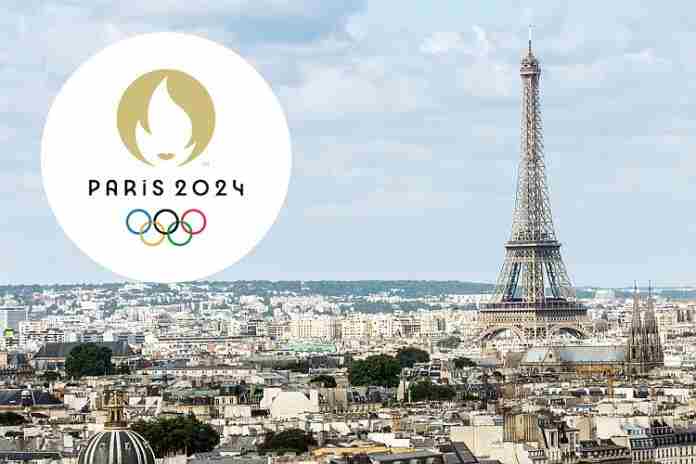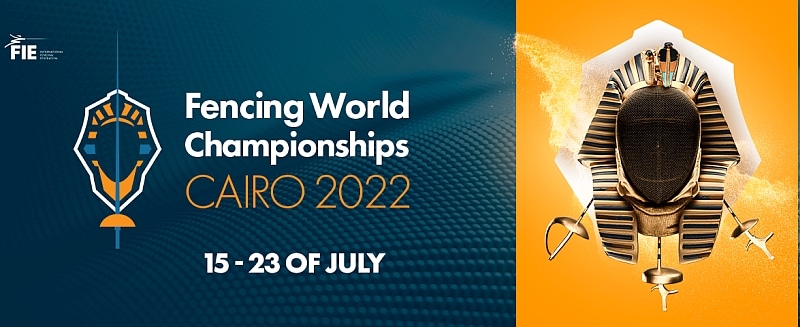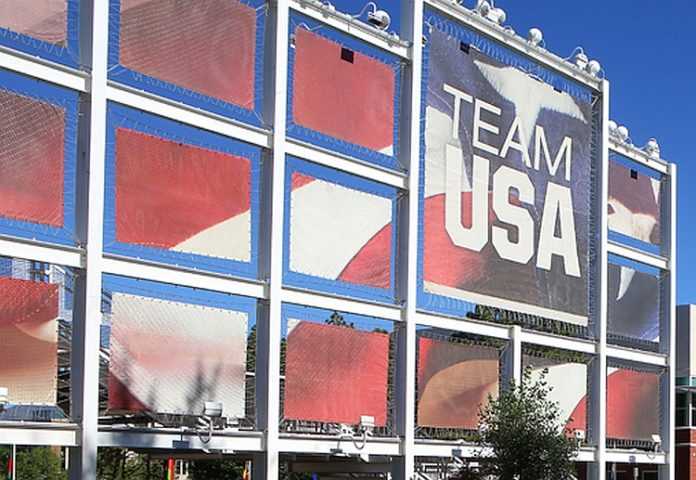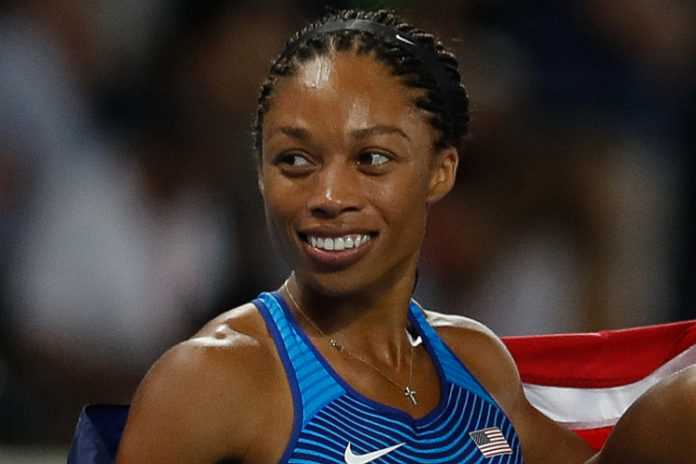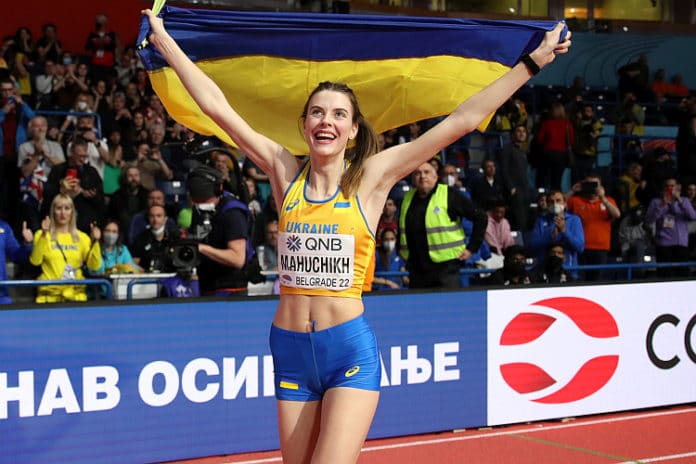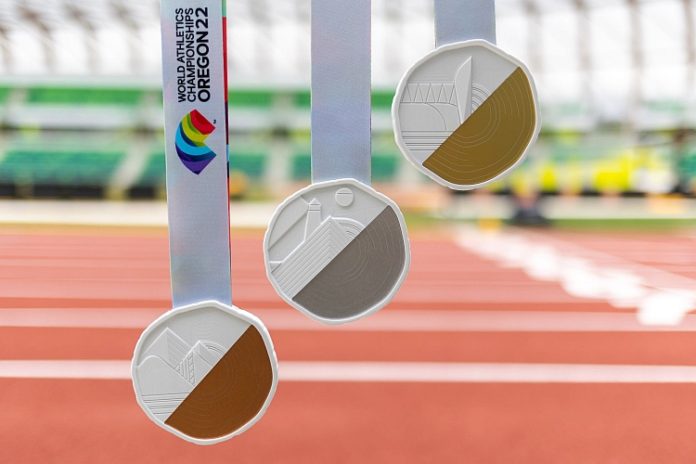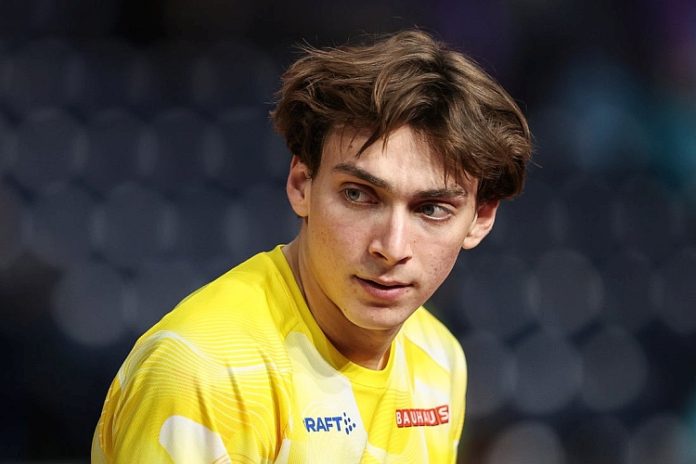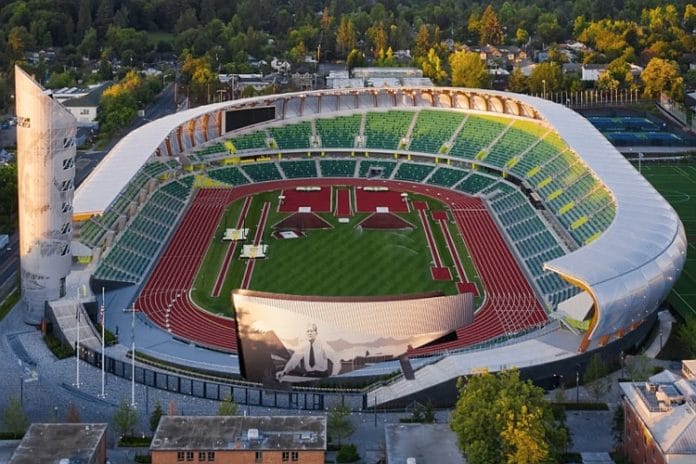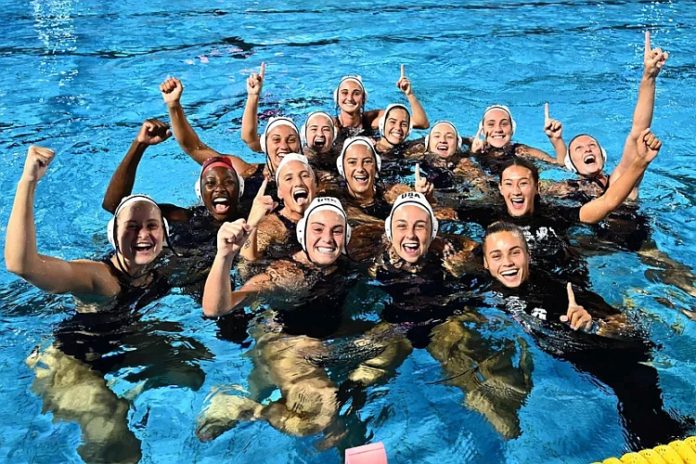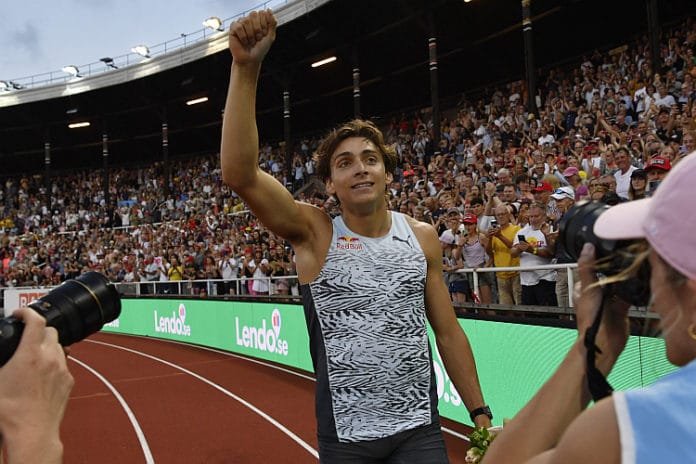★ The Sports Examiner: Surveying, monitoring and explaining the key competitive, economic and political forces shaping elite sport and the Olympic Movement. ★
Thank you to our 23 donors, who have covered 33% of our summer funding goal for operating costs. Can you help? Please donate here. Comments? Click here.
★ To get The Sports Examiner by e-mail: sign up here! ★
≡ THE 5-RING CIRCUS ≡
1. Birmingham City Council approves $5 million for World Games bailout
2. Labor arrests in Qatar add further focus on FIFA World Cup
3. Salt Lake City Olympic bid helped by $5 million for Utah Olympic Park
4. Soler’s breakaway scrambles La Vuelta leaderboard
5. A dozen World Champions at Lausanne Diamond League
The 2022 World Games in Birmingham, Alabama ended up $15.66 million in debt, but achieved a first step in paying more than 100 creditors with a $5 million grant from the Birmingham City Council. A protest in 108-degree weather over unpaid wages against a private company in Qatar, followed by arrests and deportations has raised the issue of labor rights once again, with the FIFA World Cup coming in November; the country’s labor ministry says it will make good all of the payments. A $5 million donation to the Utah Olympic Legacy Foundation will complete payments on the second phase of an upgrade series, with positive consequences for the Salt Lake City Winter Olympics bid for 2030 (or 2034). A late breakaway during Stage 5 of the Vuelta a Espana led to a shuffling of the leaderboard, with three-time champ Primoz Roglic of Slovenia falling from first to fifth. The annual Athletissima meet in Lausanne comes Friday, with a dozen 2022 World Champions expected to compete, including Jamaica’s Shelly-Ann Fraser-Pryce and American Noah Lyles.
1.
Birmingham City Council approves $5 million for
World Games bailout
Once the bills were all added up, the organizers of the 2022 World Games in Birmingham owe $15,656,173 to more than 100 individuals or companies. On Tuesday, the City Council approved a $5 million grant to the World Games Birmingham Foundation.
World Games chief executive Nick Sellers explained that the event was organized to cost $75 million, but was reduced as the program was developed. But it became clear there was going to be a deficit; said Sellers:
“We believed we could do it for $60 million. We were tracking $57 million in real revenue.”
But sponsorships that would have brought in $2.5 million evaporated in May and then ticket sales failed to materialize as hoped:
“We had to recalibrate from $7 million down to $4 million in ticket revenues. That was a $6 million hit. We expected $57 million; we ended at $51 million.” Some 200,000 tickets were expected to be sold; actual sales were about 60,000 and the year’s delay in the event due to pandemic did not help.
Sellers also noted an important aspect of the shortfall was that many fewer out-of-area visitors came to see the Games than had been anticipated, especially in the bid phase.
That revenue total included $27 million in sponsorship revenue, but the costs ended up just above $66 million for the $15.66 million loss. Among the largest creditors are host broadcaster ISB television (owed $1.182 million), Swiss Timing ($1.155 million), Van Wagner for sports production services ($938,680), Miller Media for sports production and signage ($878,000) and Revel XP for bleachers, staging and tents ($852,000).
Birmingham Mayor Randall Woodfin lobbied for the grant and later released a statement that included:
“The World Games 2022 was a success on many levels. We expect a strong economic impact when numbers are finalized. There are multiple economic development leads based on The World Games. You can’t put a dollar amount on the boost to civic pride and positive coverage of Birmingham worldwide due to the games.
“Let me stress, Birmingham benefitted greatly from this event. Taking the next steps to leverage the data and expertise from the Birmingham Organizing Committee while ensuring the Games and vendors close out on a positive note is critical to maintaining the momentum we have experienced in Birmingham.
“This event changed the funding model for The World Games. Previous events relied almost entirely on government funding. The 2022 World Games relied heavily on private funding. Funding by sponsors at the Birmingham games outpaced all other host cities combined.”
Sellers is next expected to ask Jefferson County Commission and the Birmingham Convention & Visitors Bureau for added funds, along with soliciting private-sector donations.
Birmingham has doubled down on events, as the City Council approved a $2 million grant to support the 2025 World Police and Fire Games. Some 8,500 competitors from 70 countries are expected to attend.
2.
Labor arrests in Qatar add further focus on FIFA World Cup
A labor protest over unpaid wages by at least 60 foreign workers in downtown Doha (QAT) on 14 August resulted in multiple arrests and some deportations.
The workers were protesting against a private company, Al Bandary International Group, which had reportedly not paid some workers for as long as seven months.
The Associated Press reported that “Qatar’s government acknowledged that ‘a number of protesters were detained for breaching public safety laws,’” but provided no specifics on the number of arrests or deportations.
According to the AP and other reports, the government agreed that Al Bandary International had not paid the workers and that “its Labor Ministry would pay ‘all delayed salaries and benefits’ to those affected.” The government statement added:
“The company was already under investigation by the authorities for nonpayment of wages before the incident, and now further action is being taken after a deadline to settle outstanding salary payments was missed.”
According to British-based labor-rights organization Equidem, the protesting workers are from Bangladesh, India, Nepal, Egypt and the Philippines, who stood outside in 108-degree temperatures. Equidem and many others have protested against the award of the FIFA World Cup to Qatar – under questionable circumstances – in 2010 and ever since, especially in regard to the country’s treatment of foreign labor, a necessity in a country of just 2.8 million residents.
3.
Salt Lake City Olympic bid helped by $5 million
for Utah Olympic Park
The organizers of the Salt Lake City bid for the 2030 (or 2034) Olympic Winter Games have made it clear that it needs to build no new venues to host the event. Now, it won’t have to worry about some of the costs thanks to a $5 million donation by the George S. and Dolores Dore Eccles Foundation, announced last Thursday (18th).
The grant will be used to pay off the remaining cost of the $17.5 million second phase of the multi-year upgrade program for the Utah Olympic Park, which hosted the ski jumping and sliding events at the 2022 Winter Games.
Expected to be completed in time for the coming winter season, the upgrades include a competition-grade Alpine Giant Slalom course and a competition course for Moguls skiing, a better chairlift, lighting and snowmaking machinery. Both are expected to be heavily used by the public, regardless of when the Winter Games return.
According to Utah Olympic Legacy Foundation chief executive Colin Hilton, the gift is the largest private donation ever received. He noted:
“It most certainly will be used for the Olympic and Paralympic Games. … [but] “the true value of this mountain is to have a dedicated training and competition venue that doesn’t have the challenges of being within a ski resort. That allows us to focus on athlete training and events. To have the terrain at a facility right here at the Olympic Park is just terrific for all parties.”
4.
Soler’s breakaway scrambles La Vuelta leaderboard
Stage 5 of the 77th edition of the Vuelta a Espana saw the script torn up and thrown away as a breakaway group turned into a 15 km solo by Spanish star Marc Soler that upset the race leaderboard.
The hilly stage of 187.2 km from Irun to Bilbao had five climbs in the final half, and 18 riders took off at midway. On the final climb up the Alto de Vivero, Soler took off, passing Jake Stewart (GBR) for the lead and soloing to the finish. He ended up four seconds up on Daryl Impey (RSA), Fred Wright (GBR) and Rudy Molard (FRA).
For Soler, 28, it was his second career La Vuelta stage – also in 2020 – but it was Moland who jumped from 20th to first in the overall standings. Three-time winner Primoz Roglic (SLO) finished with the other overall contenders in 23rd, some 5:09 back of the winner. Molard now has a two-second edge on Wright, 1:09 on Niklas Arndt (GER) and 4:09 on Roglic, now in fifth.
The major climbing stages start on Thursday with a four-climb stage that ends with a ferocious uphill finish to the 1,131 m altitude finish at San Miguel de Aguayo.
5.
A dozen World Champions at Lausanne Diamond League
The final chapter of the Wanda Diamond League for 2022 begins on Friday in Lausanne (SUI), with the annual Athletissima meet, with 12 of the World Championships gold medalists from Eugene expected to be on the starting lines.
The sprints will be featured, with Jamaican stars including five-time women’s 100 m champ Shelly-Ann Fraser-Pryce meeting 200 m champ Shericka Jackson and 100-200 m Olympic winner Elaine Thompson-Herah.
American stars Noah Lyles and Erriyon Knighton, 1-3 at 200 m in Eugene, will face off once again, along with 400 m World Champion Michael Norman. World 110 m hurdles winner Grant Holloway of the U.S. will take on Eugene silver winner Trey Cunningham and Olympic winner Hansle Parchment (JAM).
Nigeria’s world-record setter and World 100 m hurdles champ Tobi Amusan will face Eugene medalists Britany Anderson (JAM), Olympic winner Jasmine Camacho-Quinn (PUR) and Olympic silver medalist Keni Harrison of the U.S. In the women’s 400 m hurdles, Dutch star Femke Bol, the Worlds silver medalist in 2022, will face 2016 Olympic champ and 2022 Worlds bronze medalist Dalilah Muhammad of the U.S.
More World Champions: Norway’s Worlds 5,000 m winner Jakob Ingebrigtsen will run the 1,500 m – where he said he was disappointed to be second – and Eugene winner Soufiane El Bakkali (MAR) will feature in the men’s Steeple.
In the field, Sweden’s Mondo Duplantis will contest an in-city vault on Thursday evening; gold medalists Mutaz Essa Barshim (QAT), Ryan Crouser (USA) and Yulimar Rojas (VEN) are the favorites in the men’s high jump and shot and women’s triple jump on Friday.
In the U.S., NBC will show the meet live only on its Peacock streaming service from 2-4 p.m. Eastern time on Friday. A replay on cable channel CNBC is scheduled for 1-3 p.m. Eastern on Saturday.
The Diamond League will conclude with the Van Damme Memorial in Brussels on 2 September and the final in Zurich on 7-8 September.
≡ PANORAMA ≡
● Olympic Games 2024: Paris ● Another poll of French attitudes towards the Games, this time from the magazine Sponsoring.fr, as reported by FrancsJeux.com.
This one is favorable to the Games, with 66% “happy” that Paris has the Games and 12% against. About 25% plan to attend the events. But as for finances, 54% believe the event will have a negative impact as to the cost borne by taxpayers.
The legacy of the Games? Some 87% say the practice of sport will be encouraged and 85% think tourism will be helped.
● Paralympic Games 2032: Brisbane ● The International Paralympic Committee celebrated exactly 10 years to go until the opening of the 2032 Paralympic Games, with Paralympics Australia chief exec Catherine Clark explaining:
“The Brisbane Paralympics presents a unique chance for Australia to make great strides towards becoming a truly barrier-free society. These Games will be a catalyst to drive greater social inclusion for Australians living with a disability, including in education, employment, transport and accommodation.”
The IPC story also editorialized:
“Since Sydney 2000, the success of host cities has been largely determined by the quality of delivery of their Paralympic Games. London 2012 was widely regarded as the ‘best Games ever’ after its highly successful Paralympic component.”
Observed: “Largely determined”? More than the Olympic Games? Really? The story was not bylined; perhaps the World Anti-Doping Agency should be made aware and issue a test request?
● Field Hockey ● Argentina’s Sofia Maccari won an Olympic silver medal as a forward on the women’s hockey squads in London in 2012 and Tokyo in 2021, and was going to show her Tokyo medal to friends on 8 September last year when she was the victim of an armed robbery.
Her car, phone, money and her Tokyo medal were all taken, beginning an extortion effort by the thieves for the return of the medal. Maccari went to the police; one of the suspects, aged 17, was arrested, but the medal has not been retrieved.
A long process then began to try and get a replacement medal and with the assistance of the Argentine Olympic Committee, Maccari received a replica medal in mid-August from the International Olympic Committee. Said the two-time silver medalist:
“This moment is very important for me because it represents all the effort that one makes for a long time to get this medal. With all my heart I want to thank all the people of the Argentine Olympic Committee, all those who helped on social networks and the girls of the team, who helped me make a huge mobilization, I thank the International Olympic Committee for having returned this medal that I loved so much. I want to share it with the girls and the team’s coaching staff.”
● Freestyle Skiing ● “Where do I even begin? 3 Olympic Games, 1 Olympic Silver Medal, World Cup podiums, X-Games medals, FIS globes, Dew Tour podiums, 1 Acl, 2-3 meniscus repairs, cartilage damage, broken bones, 2 dislocated shoulders, 5 total knee surgeries, and endless memories with amazing teammates, coaches, friends, and family. With all the good does come some bad but I wouldn’t trade anything for the experiences I’ve had the last decade. Skiing has given me a love for the outdoors, lifelong friends, and has given me a chance to see the world. Skiing has been my everything since I was 6 years old.
“I am retiring from competitive skiing! It is bittersweet but everything must come to an end. Not going to lie, I’m a little scared for the future because skiing has been all I’ve know basically my whole life, but I’m also excited for what’s next.”
American Freestyle Halfpipe and Slopestyle star Devin Logan, now 29, retires with an impressive trophy case, starting with her Olympic Freestyle Slopestyle silver in Sochi in 2014. She was a fixture on the FIS World Cup circuit and collected 14 medals from the 2010-11 season through 2021-22, including three wins. So, what is next?
“I’m finally going to be finishing my degree, have the time at home for house projects, and can even get a dog! I’m still going to ski as much as possible because that’s who I am but I’m also excited to discover other parts of myself outside of the bib.”
● Swimming ● FINA announced a nearly $1.2 million prize pool for the upcoming, three-meet FINA World Cup from mid-October to early November.
At each stop, $224,000 in prizes will be awarded to the top finishers ($112,000 per gender) for a three-meet total of $672,000. On top of this will be a “total series prize purse” of $262,000 per gender to the top eight finishers ($524,000 total), so total prizes will be $1,196,000.
Bonuses for world records ($10,000 each) and for event sweeps – wins in all three meets – of $10,000 will also be awarded.
¶
You can receive our exclusive TSX Report by e-mail by clicking here. You can also refer a friend by clicking here, and can donate here to keep this site going.
For our updated, 620-event International Sports Calendar for 2022 and beyond, by date and by sport, click here!









